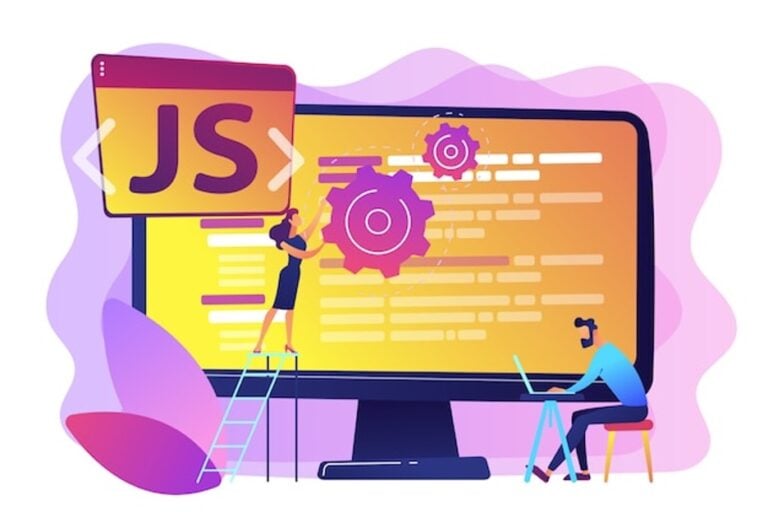Advantages And Disadvantages Of Application Software

Application software, also known as end-user programs, are designed to perform specific tasks for the user. In our blog post, we will be discussing the advantages and disadvantages of using application software in depth, including topics such as cost, efficiency, and security. Stay tuned for a comprehensive overview of this important topic!
What is Application Software?

Application software, also known as end-user programs, are designed to perform specific tasks for the user. These tasks can range from simple data entry and organization to more complex tasks such as graphic design, video editing, and financial management. With the increasing reliance on technology in all aspects of life, application software has become an essential tool for many individuals and organizations. Whether it’s for personal use, education or business, application software provides users with the tools they need to accomplish a wide range of tasks and improve their overall productivity.
Following are Some famous examples of application software
List of Seven types of Application Software.
Here is an insight to seven famous types of application software

1- Inventory management software
This type of software is used for tracking inventory levels, sales, and orders, and generating reports. It helps businesses to manage their stock effectively and make informed decisions.
2- Human resource management software
This software is used for managing employee information, tracking their attendance, and handling payroll and benefits. It streamlines HR tasks and allows businesses to manage their workforce more efficiently.
3- Customer relationship management software
CRM software is used for managing interactions with customers and clients. It helps businesses to track leads, sales, and customer service requests, and generate reports.
4- Project management software
This software is used for organizing and tracking the progress of projects and teams. It allows businesses to set goals, assign tasks, and monitor performance.
5- Point of Sale software
Point of Sale software is used by retailers, restaurants and other businesses to manage their transactions, inventory and customer relationship.
6- Medical billing software
This type of software is specifically designed for medical practices and hospitals, it helps them to manage their billing, insurance claims, and patient records.
7- E-commerce software
E-commerce software is used by online retailers to manage their online store, including inventory, orders, and customer information. It also provides features such as payment gateway integration, shipping and tax calculation.
Check DevSecOps – The Future of Secure Software Development.
Future of Application Software
The future of application software is likely to be shaped by several trends, including the increasing use of artificial intelligence and machine learning, the growing popularity of mobile and cloud-based apps, and the need for more user-friendly and personalized experiences. As AI and machine learning technology continue to advance, we can expect to see more applications that are able to understand and respond to users’ needs in real-time.
Additionally, the shift towards mobile and cloud-based apps will allow for greater flexibility and accessibility, as users will be able to access their apps and data from anywhere at any time. Finally, user experience and personalization are becoming increasingly important, as users expect applications to be tailored to their individual needs and preferences. As a result, we can expect to see more applications that are designed with user-centricity in mind and provide a more seamless, intuitive and personalized experience.
Check How to Build a Software With AI?.
Advantages of Application Software
Application software can automate mundane tasks, allowing users to be more productive and focus on more pressing responsibilities.
Applications can assist users in structuring and maintaining large amounts of information, such as financial records, client data, and project specifics.
Applications can enable seamless communication and collaboration among team members, regardless of their location, leading to more productive teamwork.
Many application software options are available at a low cost or even for free, which can save individuals and businesses money in the long run.
Applications can be adapted to meet the specific requirements of individual users or businesses, providing a more personalized and efficient experience.
With cloud-based and mobile applications, users can access their software and data from anywhere, at any time, using any device.
Application software can provide access to specialized functionalities and tools that are not available in traditional software, such as advanced analytics and data visualization tools.
Disadvantages of Application Software
Some application software may come with a high initial cost, which can be a barrier for some individuals or businesses.
Some application software can be complex to use and may require significant training or technical knowledge to operate effectively.
Some application software may not have all the features or functionalities required by the user, which can limit its utility.
Some application software may not have sufficient security measures in place to protect sensitive data, which can put users at risk of data breaches or cyberattacks.
Overreliance on application software can lead to a lack of skills and knowledge in performing tasks manually, which can be a problem in case of software malfunction or unavailability.
Application software may not be compatible with certain hardware or other software, which can limit its functionality or usability.
Some application software may require frequent updates or upgrades, which can be time-consuming and costly.
Conclusion
Application software plays an important role in our daily lives, whether it’s for personal use, education or business. It provides users with the tools they need to accomplish a wide range of tasks, automate repetitive work and improve overall productivity. With the increasing use of artificial intelligence and machine learning, the growing popularity of mobile and cloud-based apps, and the need for more user-friendly and personalized experiences, the future of application software looks promising.
However, it’s important to consider the disadvantages as well, such as initial cost, complexity, limited functionality, security concerns, dependence, compatibility issues, and upgradability. Overall, the choice of application software depends on the specific needs of the user or the organization, and a careful consideration of both the advantages and disadvantages is necessary before making a decision.






